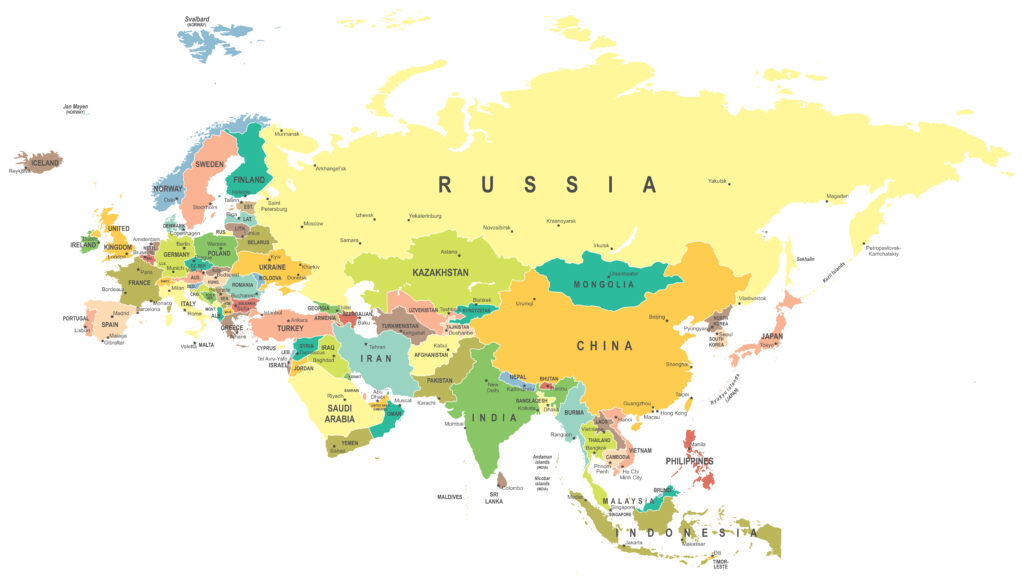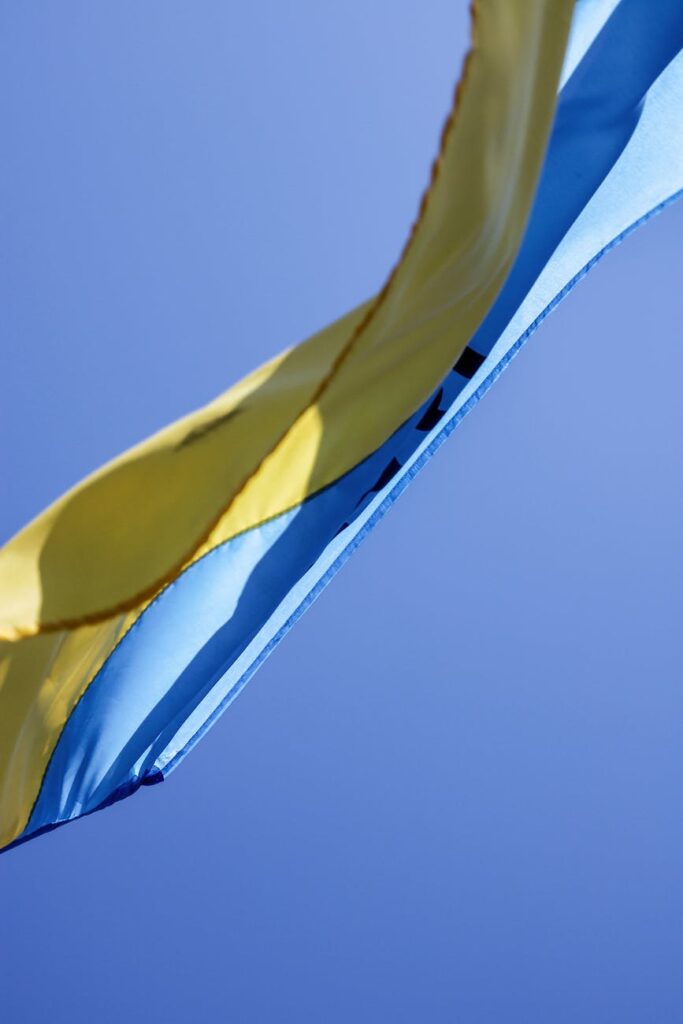
Some thoughts: I am very skeptical of the level of penetration they are claiming that the U.S. had of Russian military plans, especially as far back as last October. I tend to think they want to keep claiming that Putin’s initial ambitions were grandiose in order to maintain the narrative that Putin and his closest military advisors greatly miscalculated. I think there’s some info war going on with this article. They don’t have much else right now since the Ukrainian army – despite help from its western allies – has no hope of militarily defeating Russia. – Natylie
By Shane Harris, Karen DeYoung, Isabelle Khurshudyan, Ashley Parker and Liz Sly, Washington Post, 8/17/22
On a sunny October morning, the nation’s top intelligence, military and diplomatic leaders filed into the Oval Office for an urgent meeting with President Biden. They arrived bearing a highly classified intelligence analysis, compiled from newly obtained satellite images, intercepted communications and human sources, that amounted to Russian President Vladimir Putin’s war plans for a full-scale invasion of Ukraine.
For months, Biden administration officials had watched warily as Putin massed tens of thousands of troops and lined up tanks and missiles along Ukraine’s borders. As summer waned, Jake Sullivan, the national security adviser, had focused on the increasing volume of intelligence related to Russia and Ukraine. He had set up the Oval Office meeting after his own thinking had gone from uncertainty about Russia’s intentions, to concern he was being too skeptical about the prospects of military action, to alarm.
The session was one of several meetings that officials had about Ukraine that autumn — sometimes gathering in smaller groups — but was notable for the detailed intelligence picture that was presented. Biden and Vice President Harris took their places in armchairs before the fireplace, while Secretary of State Antony Blinken, Defense Secretary Lloyd Austin and Gen. Mark A. Milley, chairman of the Joint Chiefs of Staff, joined the directors of national intelligence and the CIA on sofas around the coffee table.
Tasked by Sullivan with putting together a comprehensive overview of Russia’s intentions, they told Biden that the intelligence on Putin’s operational plans, added to ongoing deployments along the border with Ukraine, showed that all the pieces were now in place for a massive assault.
The U.S. intelligence community had penetrated multiple points of Russia’s political leadership, spying apparatus and military, from senior levels to the front lines, according to U.S. officials.
Much more radical than Moscow’s 2014 annexation of Crimea and instigation of a separatist movement in eastern Ukraine, Putin’s war plans envisioned a takeover of most of the country.
Using mounted maps on easels in front of the Resolute Desk, Milley showed Russian troop positions and the Ukrainian terrain they intended to conquer. It was a plan of staggering audacity, one that could pose a direct threat to NATO’s eastern flank, or even destroy the post-World War II security architecture of Europe.
As he absorbed the briefing, Biden, who had taken office promising to keep the country out of new wars, was determined that Putin must either be deterred or confronted, and that the United States must not act alone. Yet NATO was far from unified on how to deal with Moscow, and U.S. credibility was weak. After a disastrous occupation of Iraq, the chaos that followed the U.S. withdrawal from Afghanistan, and four years of President Donald Trump seeking to undermine the alliance, it was far from certain that Biden could effectively lead a Western response to an expansionist Russia.
Gen. Mark A. Milley, chairman of the Joint Chiefs of Staff. (Emily Sabens/The Washington Post; Jabin Botsford/The Washington Post; iStock)
Ukraine was a troubled former Soviet republic with a history of corruption, and the U.S. and allied answer to earlier Russian aggression there had been uncertain and divided. When the invasion came, the Ukrainians would need significant new weaponry to defend themselves. Too little could guarantee a Russian victory. But too much might provoke a direct NATO conflict with nuclear-armed Russia.
This account, in previously unreported detail, shines new light on the uphill climb to restore U.S. credibility, the attempt to balance secrecy around intelligence with the need to persuade others of its truth, and the challenge of determining how the world’s most powerful military alliance would help a less-than-perfect democracy on Russia’s border defy an attack without NATO firing a shot.
The first in a series of articles examining the road to war and the military campaign in Ukraine, it is drawn from in-depth interviews with more than three dozen senior U.S., Ukrainian, European and NATO officials about a global crisis whose end is yet to be determined. Some spoke on the condition of anonymity to discuss sensitive intelligence and internal deliberations.
The Kremlin did not respond to repeated requests for comment.
As Milley laid out the array of forces on that October morning, he and the others summed up Putin’s intentions. “We assess that they plan to conduct a significant strategic attack on Ukraine from multiple directions simultaneously,” Milley told the president. “Their version of ‘shock and awe.’ ”
According to the intelligence, the Russians would come from the north, on either side of Kyiv. One force would move east of the capital through the Ukrainian city of Chernihiv, while the other would flank Kyiv on the west, pushing southward from Belarus through a natural gap between the “exclusion zone” at the abandoned Chernobyl nuclear plant and surrounding marshland. The attack would happen in the winter so that the hard earth would make the terrain easily passable for tanks. Forming a pincer around the capital, Russian troops planned to seize Kyiv in three to four days. The Spetsnaz, their special forces, would find and remove President Volodymyr Zelensky, killing him if necessary, and install a Kremlin-friendly puppet government.
Separately, Russian forces would come from the east and drive through central Ukraine to the Dnieper River, while troops from Crimea took over the southeastern coast. Those actions could take several weeks, the Russian plans predicted.
After pausing to regroup and rearm, they would next push westward, toward a north-south line stretching from Moldova to western Belarus, leaving a rump Ukrainian state in the west — an area that in Putin’s calculus was populated by irredeemable neo-Nazi Russophobes.
The United States had obtained “extraordinary detail” about the Kremlin’s secret plans for a war it continued to deny it intended, Director of National Intelligence Avril Haines later explained. They included not only the positioning of troops and weaponry and operational strategy, but also fine points such as Putin’s “unusual and sharp increases in funding for military contingency operations and for building up reserve forces even as other pressing needs, such as pandemic response, were under-resourced,” she said. This was no mere exercise in intimidation, unlike a large-scale Russian deployment in April, when Putin’s forces had menaced Ukraine’s borders but never attacked.
Some in the White House found it hard to wrap their minds around the scale of the Russian leader’s ambitions.
“It did not seem like the kind of thing that a rational country would undertake,” one participant in the meeting later said of the planned occupation of most of a country of 232,000 square miles and nearly 45 million people. Parts of Ukraine were deeply anti-Russian, raising the specter of an insurgency even if Putin toppled the government in Kyiv. And yet the intelligence showed that more and more troops were arriving and settling in for a full campaign. Munitions, food and crucial supplies were being deposited at Russian encampments.
Biden pressed his advisers. Did they really think that this time Putin was likely to strike?
Yes, they affirmed. This is real. Although the administration would publicly insist over the next several months that it did not believe Putin had made a final decision, the only thing his team couldn’t tell the president that autumn day was exactly when the Russian president would pull the trigger.
CIA Director William J. Burns, who had served as U.S. ambassador to Moscow and had had the most direct interactions with Putin of anyone in the Biden administration, described the Russian leader to the others as fixated on Ukraine. Control over the country was synonymous with Putin’s concept of Russian identity and authority. The precision of the war planning, coupled with Putin’s conviction that Ukraine should be reabsorbed by the motherland, left him with no doubts that Putin was prepared to invade.
“I believed he was quite serious,” Burns said months later, recalling the briefing….


